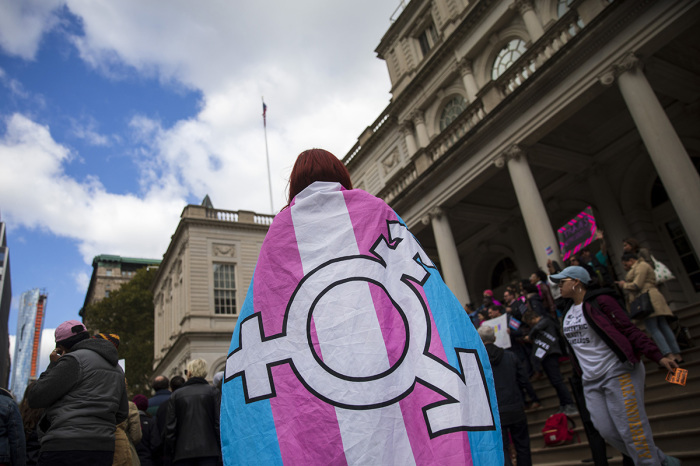
A full circuit court has upheld an Arkansas law that prohibits medical professionals from performing body-deforming sex-change procedures on minors.
The United States Court of Appeals for the Eighth Circuit ruled Tuesday to uphold the Save Adolescents From Experimentation Act, or Act 626, reversing a lower court decision and remanding the case for further proceedings.
Circuit Judge Duane Benton, a George W. Bush appointee, authored the majority opinion, writing that “the Act does not discriminate on the basis of sex” and that the law “regulates a class of procedures, not people.”
“The Act is rationally related to the state’s legitimate interest in protecting the well-being of minors,” wrote Benton. “It does not violate this Nation’s historical concept of ordered liberty for the people of Arkansas, through their legislature, to prohibit physicians from providing gender transition procedures for minors.”
Circuit Judge Jane Kelly, a Barack Obama appointee, authored an opinion that concurred, in part, and dissented, in part, being joined by Circuit Judge James Loken, a George H.W. Bush appointee.
Kelly believes there was “a startling lack of evidence connecting Arkansas’ ban on gender-affirming care with its purported goal of protecting children.”
“The undisputed factual findings in this case show that Act 626 categorically removes the only treatment available for adolescents suffering from a recognized, serious health condition,” Kelly claimed. “The Act prohibits this treatment indiscriminately, regardless of the method used or its concomitant risks. And the Act prohibits puberty blockers and hormone therapies only for treating gender dysphoria, despite these treatments carrying the same or higher risks when used for different conditions.”
State Rep. Robin Lundstrum, R-District 87, who sponsored the act, celebrated the appeals court decision in a statement provided to The Christian Post on Wednesday.
“I am so grateful for the members of the Arkansas Legislature who stood up for children and families. No child can possibly consent to chemical or surgical castration under the age of 18, or possibly understand the long-term and serious health implications that accompany these experimental procedures,” stated Lundstrum.
“Never once did a co-sponsor or the members who took a courageous vote against these horrific practices back down. I am thankful for Attorney General Tim Griffin and his incredible team that professionally went about their job of also protecting the children of Arkansas.”
Lundstrum added that she was “thankful to the citizens of Arkansas and our families who have repeatedly supported and encouraged us to stand strong and fight for children to grow up healthy.”
In April 2021, Arkansas lawmakers passed the SAFE Act, overriding a veto from then-Gov. Asa Hutchinson. The new law made Arkansas the first state to ban the use of puberty blockers, cross-sex hormones and surgeries that mutilate sex organs on gender dysphoric youth.
The ACLU filed a complaint against the act in May 2021 on behalf of multiple minors and their families, with a lower court judge siding with the plaintiffs and blocking the law while litigation continued.
Over a dozen state attorneys general signed onto an amicus brief in defense of the Arkansas law.
“They threaten that Arkansas’ law will result in increased suicides even though the research does not support such a claim,” the brief stated. “And they assert that the state’s protection of its children is ‘animus’ against transgender youth, even though, among other problems with the statement, most of these children will not identify as transgender as adults since their dysphoria will have resolved naturally so long as they can be protected from Plaintiffs’ preferred experiments.”
In August 2022, a three-judge panel of the Eighth Circuit unanimously ruled to uphold the lower court decision, with Kelly writing in the court opinion that the plaintiffs “will suffer irreparable harm” if they are not given “a preliminary injunction.”



